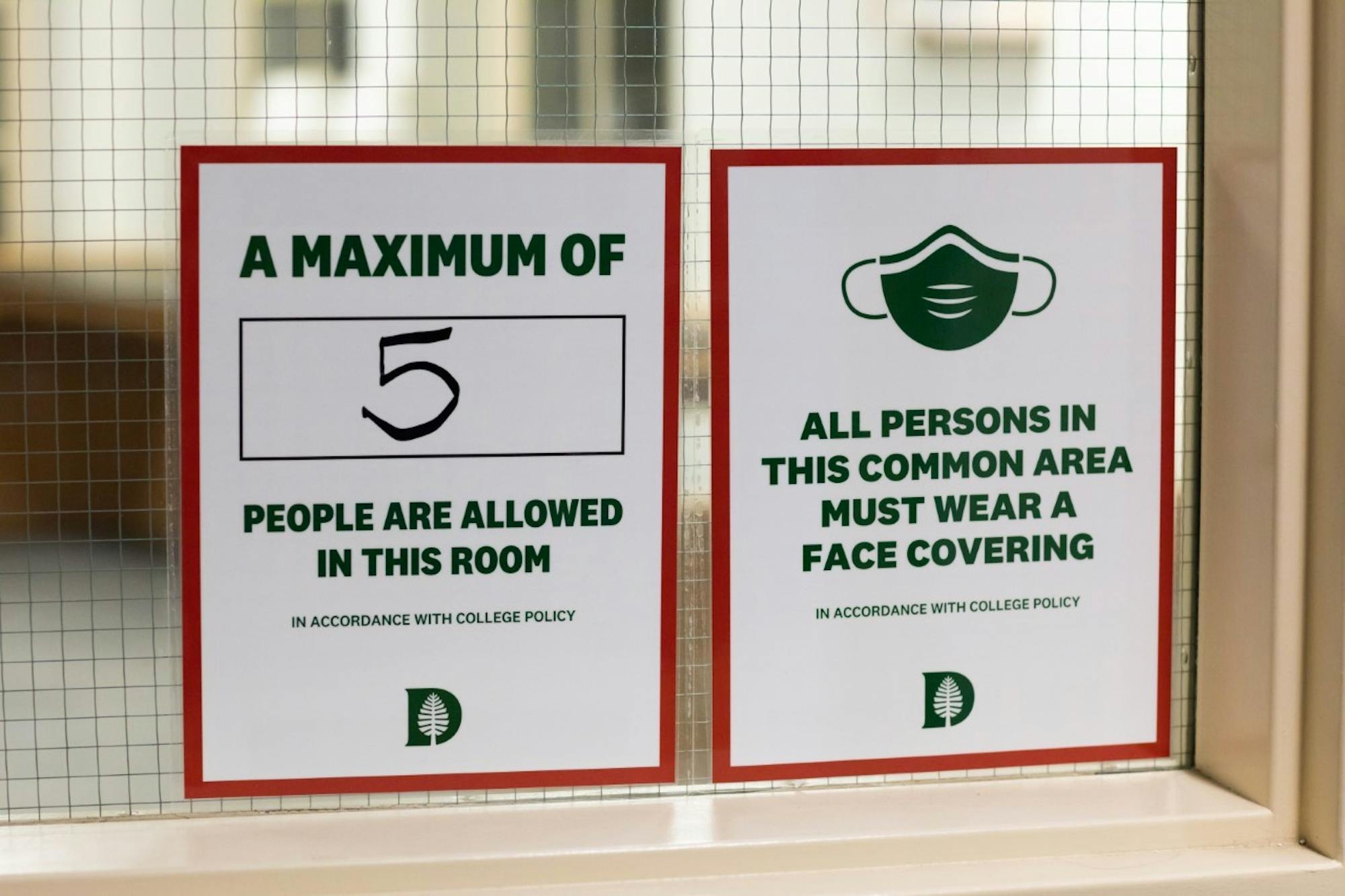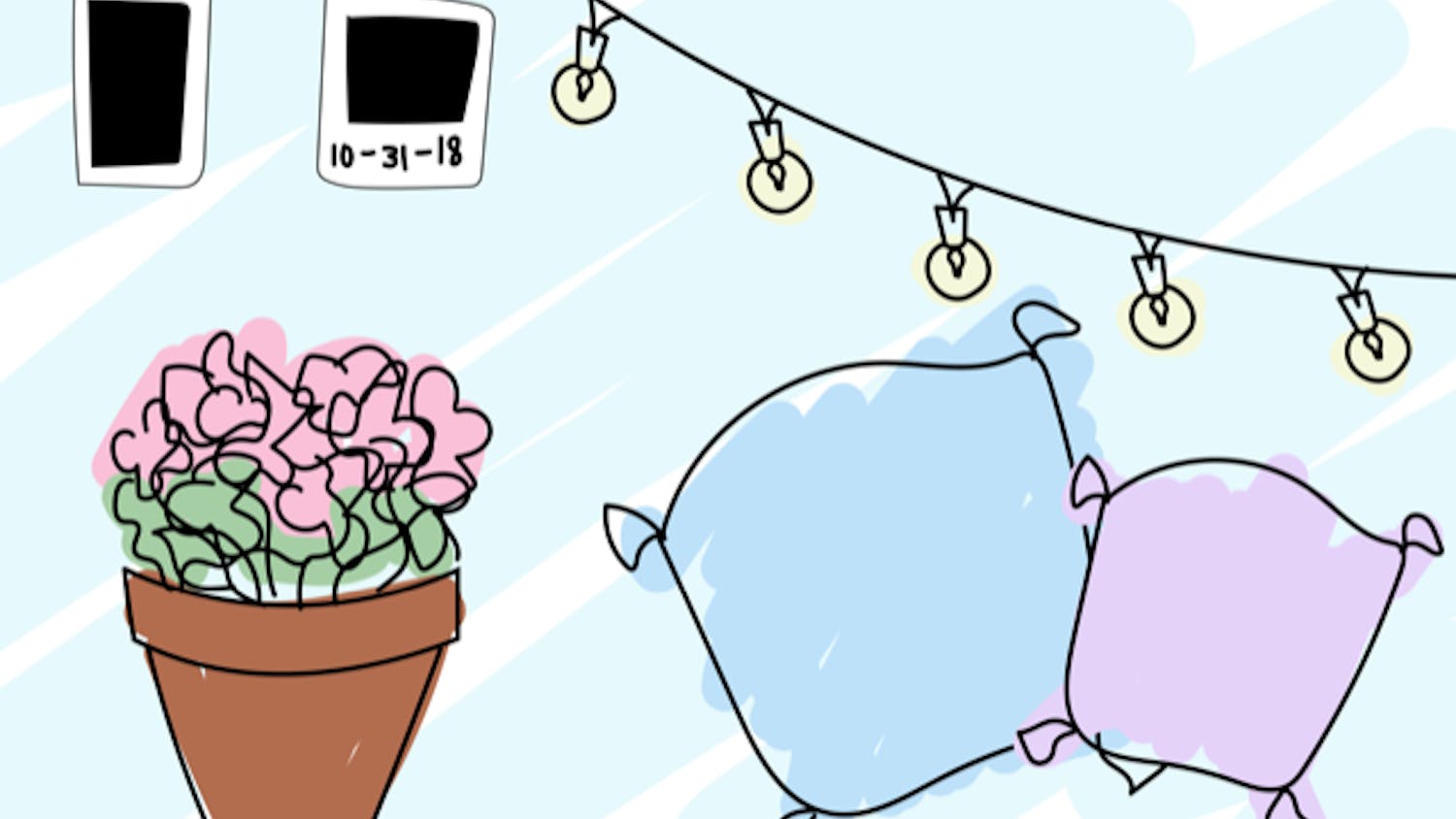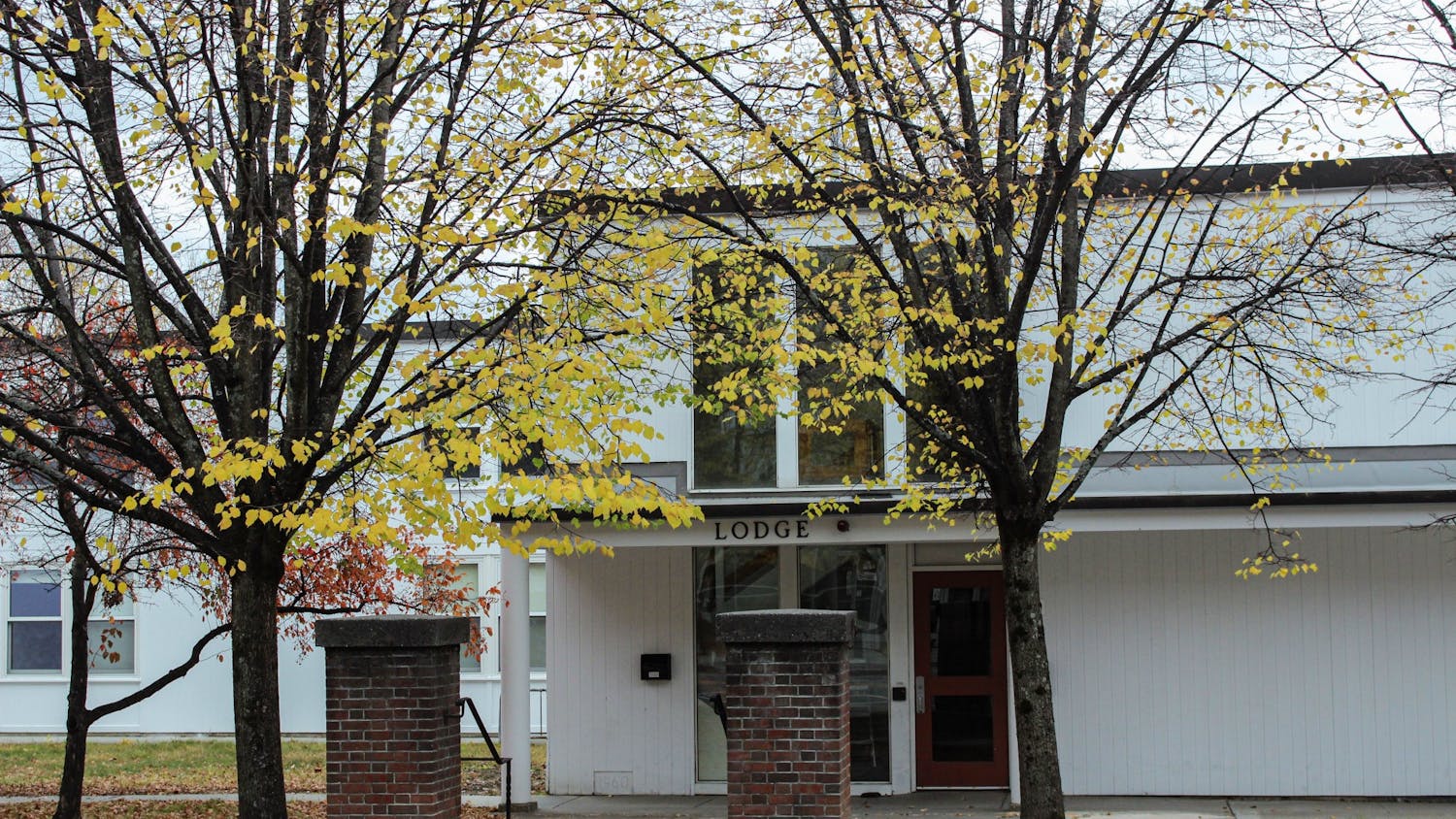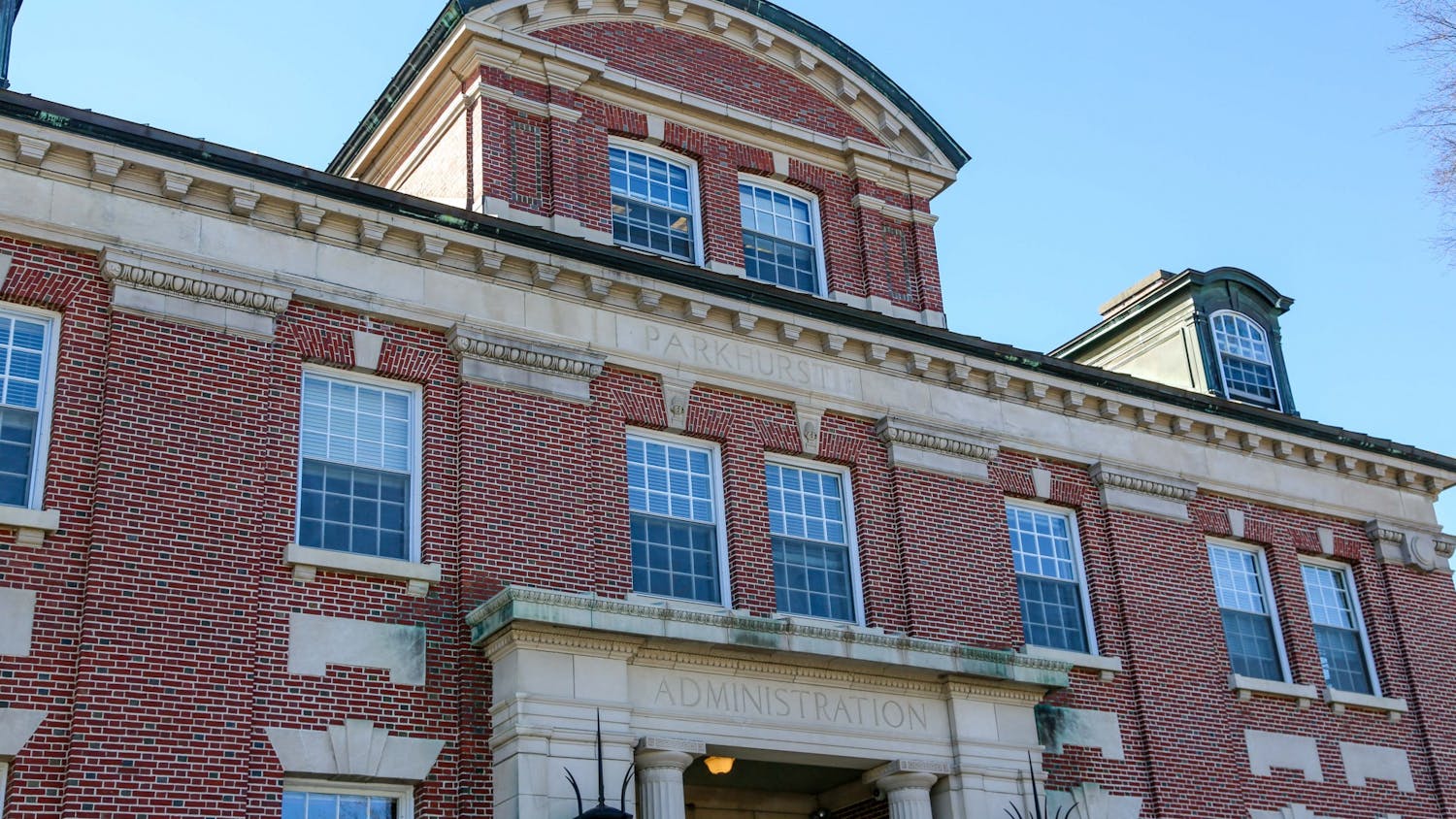Undergraduate advisors have been busy this term with the normal demands of their jobs. That includes checking in on students’ wellbeing, creating floor programs and activities and in the case of my UGA, effortlessly opening the door to Topliff washer #2 after I thought it was stuck shut and would hold my clothes hostage forever. This fall, however, UGAs are also tasked with the extra responsibilities of enforcing the College’s COVID-19 policies.
This is the first term that Bryden Wright ’23 has worked as a UGA. He’s responsible for the third floor and part of the second floor of Butterfield Hall. He said that while he doesn’t think his job is more difficult than it would have been in prior terms, it is very different.
“Now there’s a greater emphasis on floor safety because of COVID and less emphasis on the events that would normally take place because programming has been so limited,” Wright said.
While the floor programming that would usually connect residents cannot happen in person this term, Wright has found that playing online games like Skribbl.io and “Among Us” after floor meetings gives students a chance to connect without being physically together.
Wright added that although his floor seems to be staying social and connected, he keeps a lookout for signs of his residents feeling lonely or isolated.
“I’ve gotten the impression that almost everyone is really integrated into the floor,” he said. “For the most part, the situation has kind of tied people together who are in the same spaces, in part because, who else is there to hang out with?”
Maxine Smith ’22 is the UGA for the first floor and part of the second floor of Butterfield. She’s worked as a UGA since last winter.
Smith said she’s noticed a shift in the dynamic between herself and her residents this term.
“There’s a weird unspoken power dynamic where I feel like they see me more as a mentor than a friend,” she said. “It’s weird being in a dorm and not being able to invite my residents over to hang out or anything like that. I didn’t do much of that before, but it’s weird not to be able to at all.”
Smith said that constantly having to make sure residents are following the College’s rules on masks and social distancing has contributed to the altered dynamic between UGAs and other students.
“It’s just awkward because people are studying or talking and having a good time, and I have to barge in on the conversation to remind them to put their masks up,” Smith said. “As I was walking through the Hyphen I saw these guys see me and pull up their masks really quickly, and it was like a child trying to hide something from their parents. I feel like that could be a way to [destroy] community a little bit, but at the same time it’s important that they’re following the rules.”
Over the course of the first few weeks of term, three of Smith’s residents were forced to leave campus for COVID-19 policy violations. She noticed that two of her residents hadn’t attended the floor meeting on Zoom, and when she emailed them to find another time to meet, they let her know that they had been told to leave the day before and were already home.
“I was a little surprised that they were already gone by the time I found out,” she said.
A couple of weeks later, she realized she hadn’t seen one of her residents around, and that resident’s name tag was no longer on the dorm door. She reached out to her supervisor, who let her know that the resident had been asked to leave.
“I feel like I should know who’s here, just so I’m not looking for them,” Smith said.
Smith added that she had some feelings of guilt and wondered if she had done enough to encourage her residents to follow the rules.
“We had a floor meeting going over the community agreement and making sure they were well aware of the rules,” she said. “I talked to my supervisor and he said, ‘No, it’s not your fault — you can do the best you can, but these are college-age students and they’re responsible for their own behavior.’”
One responsibility of UGAs is performing walkthroughs in search of rule violations. Before COVID-19, UGAs walked through dorms in pairs three times per week for two hours. Now, UGAs can’t walk in pairs or travel long distances through dorms because of COVID-19 restrictions. Instead, each UGA walks their own floor or floors once or twice a day to make sure their residents are following the rules.
Assistant director of residential education for East Wheelock House Josiah Proietti said that despite the introduction of daily walkthroughs, he doesn’t think that the amount of time UGAs spend working with their floors has changed. Most spend less time on tasks like planning events for their floors since Proietti has removed the formal programming requirement for East Wheelock UGAs.
“Before and after COVID, UGA-ing is a lifestyle. You’re not a UGA from 4:30 to 5:30 on Tuesdays — you’re always a UGA,” he said.
Proietti said that his own job mainly consists of brainstorming how to bring people together.
“It’s been very different — that’s an understatement,” Proietti said, describing how his work has changed because of COVID-19. “Since this spring it’s morphed into ‘how do we bring people together safely,’ but also ‘how do we make sure people are keeping their distance?’”
Proietti said that in past terms, around 10% of UGA training took place online. This year, all major training initiatives were virtual. Proietti said the main thing missing were team building activities that UGAs usually go through before the term.
“My hat is off to my UGAs who have managed to still connect with each other as best they can,” Proietti said. “They still have a GroupMe and ask each other questions and call each other for help when they need it. I think it’s just like any other student this term — they’re just a little more lonely. They don’t have that important facetime with each other.”
Smith said that reaching out to her residents and keeping a positive attitude have been important aspects of her role during COVID-19 terms.
“This term I’m making sure that I’m around so that they can see me, and I have conversations with them every now and then to see if they’re okay,” Smith said. “I really dislike when people say, ‘Back in pre-COVID times it used to be like this, but now we can’t do that.’ I’m not going to sugarcoat it and say it’s the best term ever, but I think it’s not a limited term, it’s just a different term.”
While most ’23s are off campus this fall, Wright said he’s stayed fairly happy through getting to know his residents, having a few upperclassmen friends on campus and talking with other friends online.
“I talk to my friends on Discord all the time, so it’s not too bad. I happen to be a bit reclusive anyways, so it hasn’t affected me too much,” Wright said.
Wright also said that he felt residential life this term has been going as well as it can.
“I know that sometimes people can get frustrated, and I can too,” Wright said. “But I think it’s important to keep in mind that this is just a difficult situation in general. Everyone is trying their best.”




